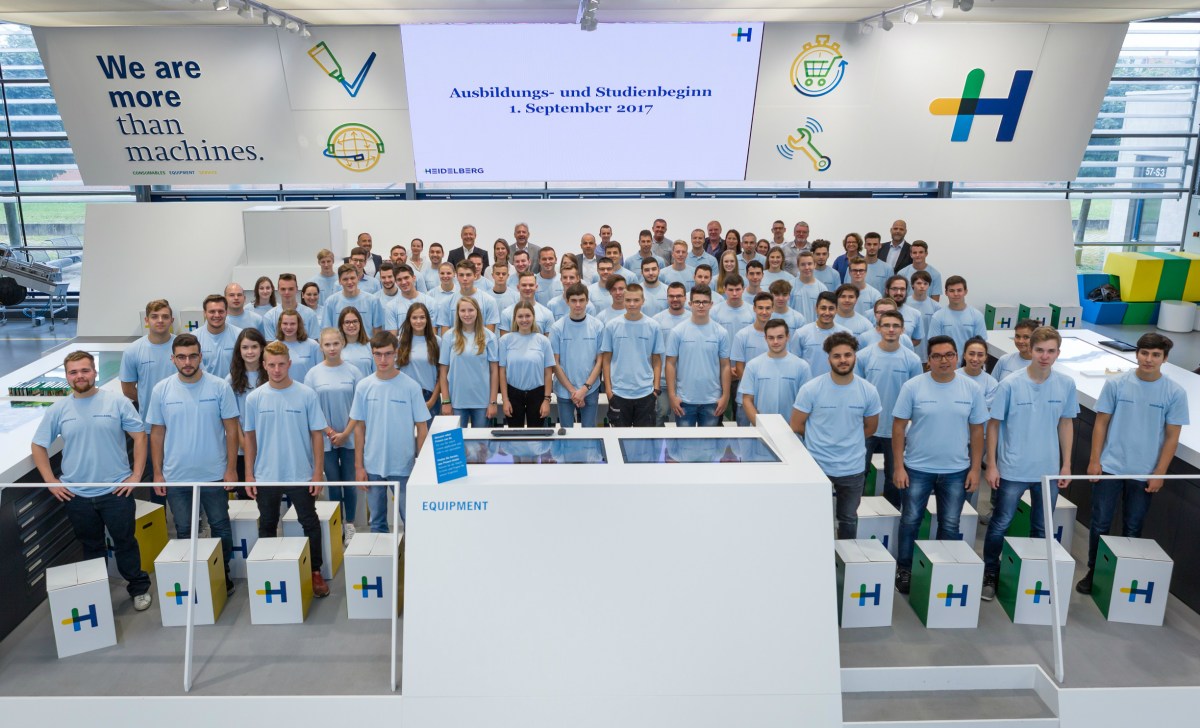Heidelberg has begun its latest training programmes focusing on the issue of its digital transformation, with 99 young people starting at one of its four sites in Germany.
Among its courses, the company will offer mechatronics engineers with targeted training in using the View2Connect virtual collaboration and communication platform, which facilitates completely digital assembly planning among other features. It plans digital workstations for trainees in various corporate departments in the future.
Currently in the middle of a massive strategic reorientation, the world’s biggest offset press manufacturer has partnerships with digital giants Fujifilm and Ricoh. While Heidelberg hopes to release the first B1 sheetfed digital inkjet press, it remains the world’s biggest offset press manufacturer, albeit with a market size at a fraction of its pre-GFC level.
From November 2017, Heidelberg will again give young people, including asylum seekers, the opportunity to take up one of twelve places as part of a collectively agreed sponsorship year. With this collectively agreed sponsorship, set up by the metal and electro industry in Baden-Wuerttemberg, it wants to create new training and employment options for young people in need of support, by means of appropriate patronage and sponsorship measures.
Ruppert Felder, head of human Resources at Heidelberg, says, “The trend towards increasing digitisation is becoming more and more evident in a large number of professions. With the various tasks in practically all corporate departments, we work together with the vocational colleges and the Cooperative State University Mannheim to facilitate a thorough understanding of digital process workflows. We invest in the next generation and, in doing so, create a sustainable foundation for Heidelberg in the context of the digital transformation.”
Commercial/technical trainees at Heidelberg train at a Learning Factory 4.0 at the vocational colleges in the Rhine-Neckar metropolitan area, a project supported by the state of Baden-Wuerttemberg to foster digital expertise.
The company’s largest training site, Wiesloch-Walldorf, has 235 trainees and students, including the 67 who make up part of this year’s intake. From last year’s collectively agreed sponsorship year, an asylum seeker from Afghanistan has gained entry onto the new training programme. He will start his traineeship as a print media technologist. In total, Heidelberg now employs approximately 300 trainees and students at the sites in Wiesloch-Walldorf, Brandenburg, Amstetten and Ludwigsburg.


